On this page:
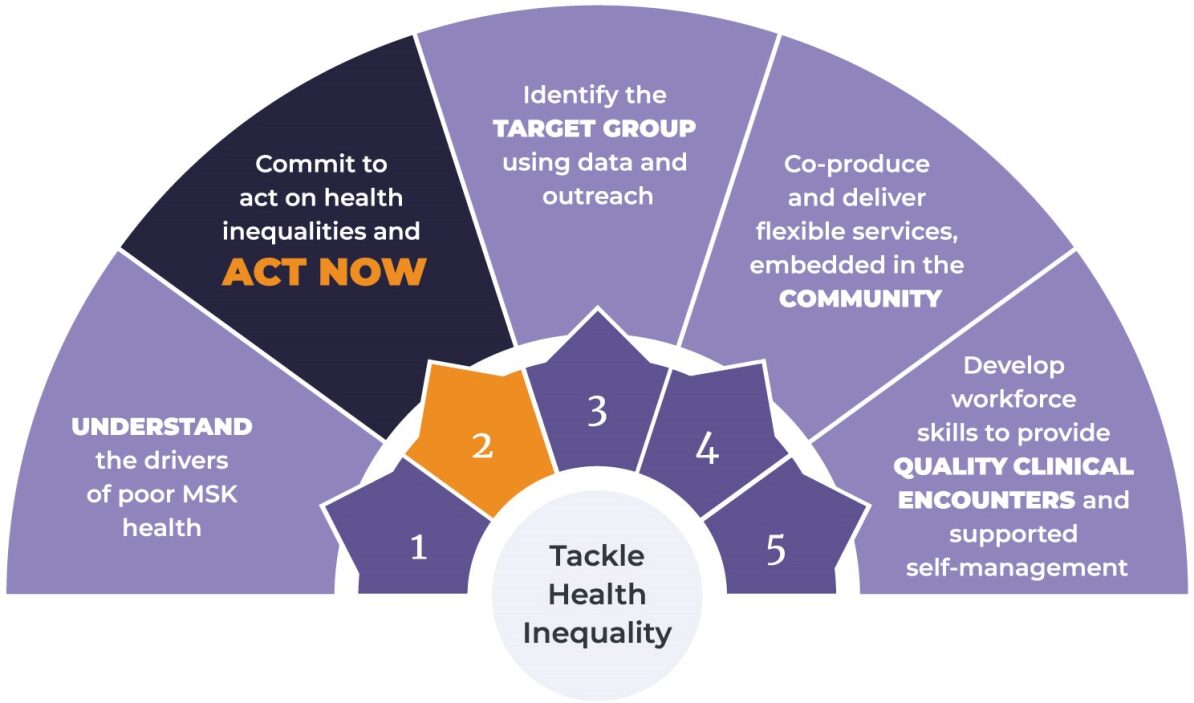
Financial support was provided for this project through sponsorship from Grünenthal UK Ltd and charitable grants from Pfizer Limited, Novartis Pharmaceuticals UK and Janssen.
Financial support was provided for this project through sponsorship from Grünenthal UK Ltd and charitable grants from Pfizer Limited, Novartis Pharmaceuticals UK and Janssen.
Throughout 2023, ARMA carried out the first ever national inquiry into MSK health inequalities to explore and highlight the issues and make recommendations for improvement. Financial support was provided for this project through sponsorship from Grünenthal UK Ltd and charitable grants from Pfizer Limited, Novartis Pharmaceuticals UK and Janssen.
The prevalence and impact of musculoskeletal conditions are not experienced equally across the population. Musculoskeletal conditions are linked to deprivation, age, are more prevalent in women, and disproportionately affect some ethnic groups.
Deprivation is a significant driver of inequalities in MSK health. People in deprived areas experience more chronic pain, are more likely to have a long term MSK condition and experience worse clinical outcomes and quality of life. These inequalities are avoidable through changes in the design and delivery of MSK services, and actions to address wider determinants of health and prevention.
Read the report
Musculoskeletal Health Inequalities and Deprivation – Report of ARMA’s Inquiry
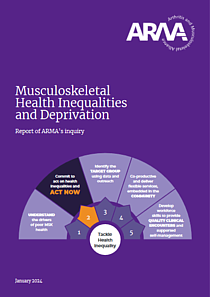 Our report sets out the evidence for inequalities in MSK health related to deprivation and explores the possible underlying reasons as well as the potential solutions. It includes recommendations for action by healthcare professionals, MSK services and local health systems. Every situation is different, so we identify some principles which can be applied to any service to address barriers to equality of access. These include knowing your community, engagement, co-production and good use of data.
Our report sets out the evidence for inequalities in MSK health related to deprivation and explores the possible underlying reasons as well as the potential solutions. It includes recommendations for action by healthcare professionals, MSK services and local health systems. Every situation is different, so we identify some principles which can be applied to any service to address barriers to equality of access. These include knowing your community, engagement, co-production and good use of data.
We hope this report and associated resources will help you to act now to reduce MSK health inequality.
Read and download the report in full:
Musculoskeletal Health Inequalities and Deprivation – Report of ARMA’s Inquiry [35 MB, opens in PDF]
Summary documents
Act Now: Summary
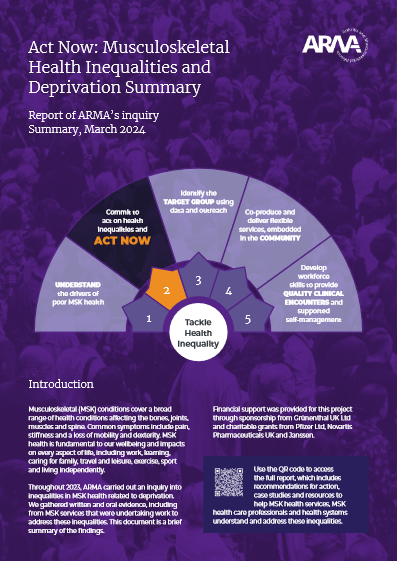 Read and download the summary. [3 MB, opens in PDF]
Read and download the summary. [3 MB, opens in PDF]
This summary includes key learning from the inquiry and the recommendations for action. Please see the full report for additional detail on recommendations and resources to support implementation. We will produce separate summaries for specific audiences and for Wales, Scotland and Northern Ireland throughout the year.
Summary for Rheumatology
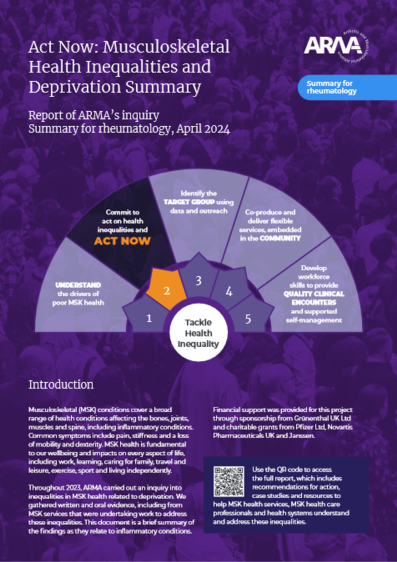 Read and download the rheumatology summary. [4 MB, opens in PDF]
Read and download the rheumatology summary. [4 MB, opens in PDF]
This document is a brief summary of findings from ARMA’s inquiry into inequalities in MSK health as they relate to inflammatory conditions.
Inquiry Resources
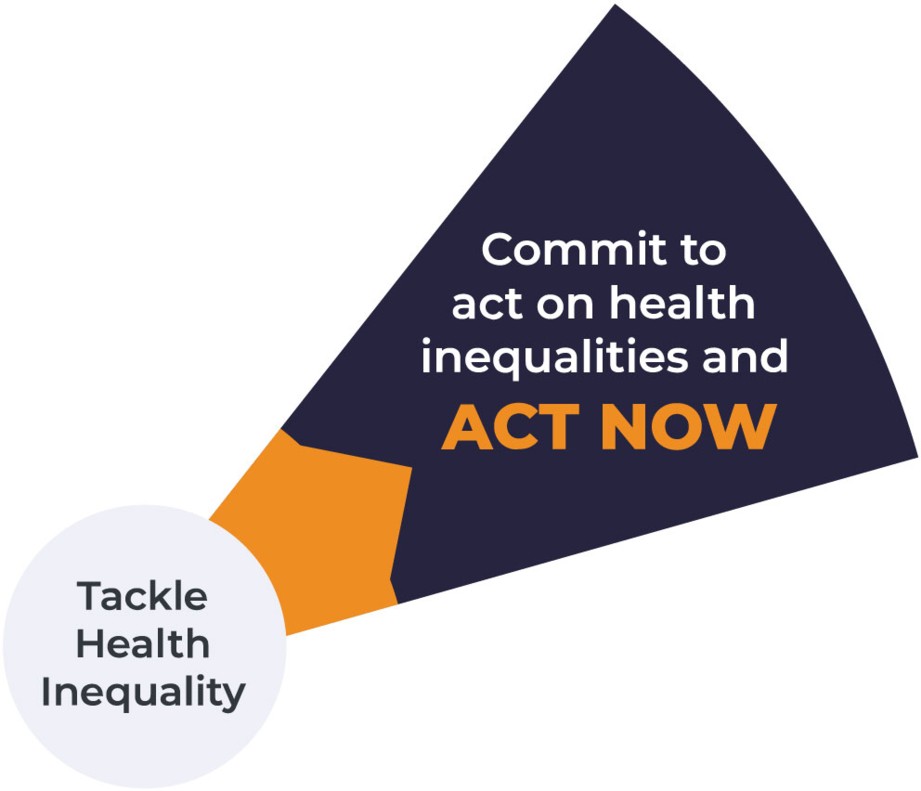
We will continue to update our resources, adding webinars, case studies, guides and links. This will include resources to help understand and tackle MSK health inequalities and to support some of the key areas identified by the inquiry: paediatric health inequalities, multimorbidity and supported self-management.
- MSK Health Inequalities
- Children and young people and MSK health inequalities
- Supported self-management and MSK health inequalities
- Multiple conditions and MSK health inequalities
General MSK Inequalities Resources
Our resource page is the place to find the most up-to-date, relevant and useful information specifically about MSK health inequalities. We regularly add new resources as they become available.
News
Check our dedicated news page for details of coming MSK Health Inequalities lecture events and meetings.
See also:
Roundtable report
Find a brief outline of the key issues in MSK inequalities and recommendations for action in our report of our 2021 Roundtable event.

